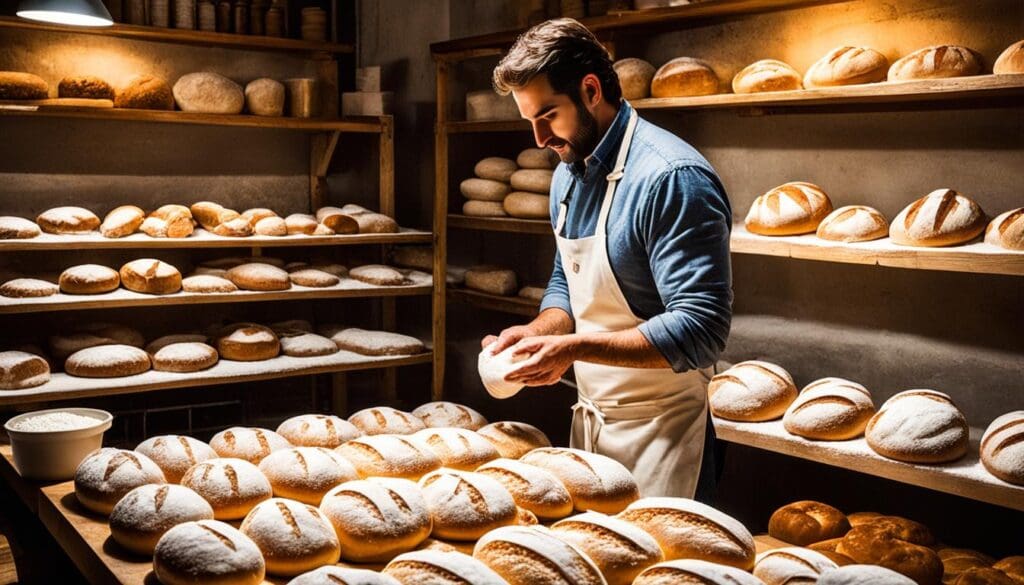Are you craving the perfect slice of sourdough bread? Buenos Aires has quietly become a mecca for artisanal bread lovers, offering a thriving scene of micro-bakeries that have mastered the craft of sourdough. Whether you’re a local or a visitor exploring the city’s vibrant neighborhoods, this guide will take you on a tour of the best sourdough bakeries in Buenos Aires. Plus, we’ll highlight how the city compares to other destinations, like Malaga, making it the ideal spot for bread connoisseurs and Spanish learners alike.
Why Buenos Aires Is a Sourdough Hotspot
Buenos Aires is renowned for its culinary culture, but you might be surprised to learn that it has also gained a reputation for its artisanal sourdough bread. The city’s micro-bakeries focus on traditional baking techniques, using only the highest-quality, locally sourced ingredients to create loaves with complex flavors and satisfying textures.
What Makes Sourdough in Buenos Aires Special?
What sets Buenos Aires apart from other sourdough capitals? The secret lies in the meticulous techniques and time-honored traditions that the city’s bakers employ. Each bakery embraces the natural fermentation process, using a sourdough starter made from wild yeast and local ingredients. This results in a bread that’s both flavorful and deeply rooted in the local culinary landscape.
Our Top Sourdough Bakeries in Buenos Aires
Ready to explore? Here’s a roundup of the best sourdough bakeries in Buenos Aires, each offering its own take on this beloved bread.
| Bakery Name | Location | Specialty |
|---|---|---|
| Panadería Central | Recoleta | Classic sourdough loaves, artisanal pastries |
| El Horno de Juan | Palermo | Flavorful rye sourdough, seeded loaves |
| La Esquina del Sourdough | San Telmo | Olive bread, specialty-flavored sourdough |
| Panadería de Barrio | Belgrano | Crusty sourdough baguettes, cinnamon-raisin loaves |
Other Sourdough with trying in Argentina:
Salvaje Bakery
Location: Av. Dorrego 1829, Colegiales
Phone: +54 11 2474-3573
Website: salvajebakery.com.ar
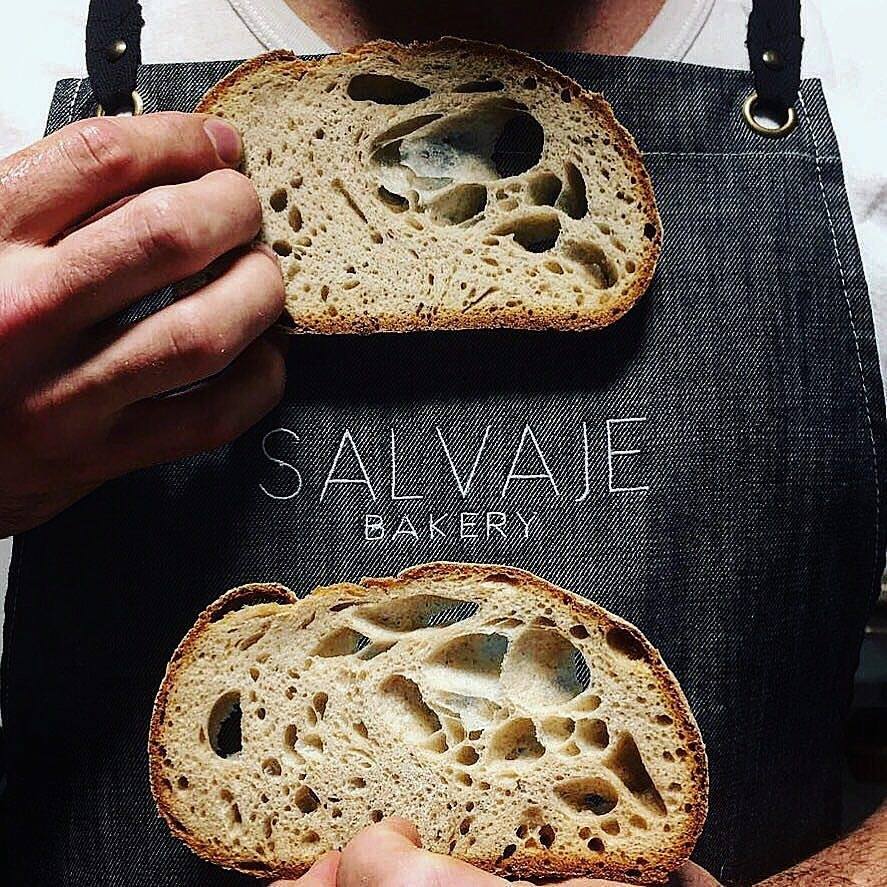
Le Pain Quotidien
Location: Various locations
Phone: +54 11 4821-0450
Website: lepainquotidien.com
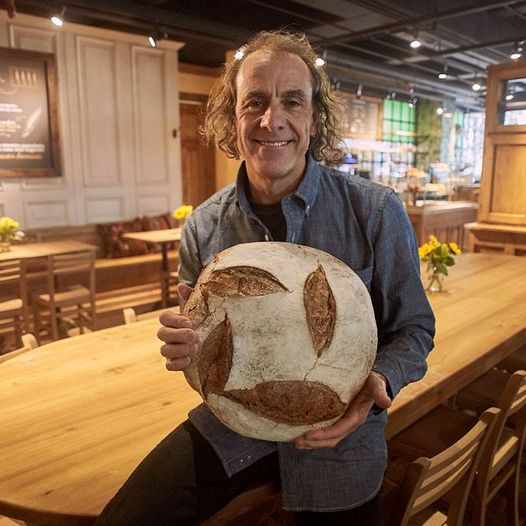
Madre Panadería
Location: Malabia 440, Villa Crespo
Phone: +54 11 2085-4040
Website: instagram.com/madre.arg
Co-Pain Boulangerie
Location: Juan B. Ambrosetti 901, Caballito
Phone: +54 11 4857-1260
Website: instagram.com/copain_boulangerie
Boûlan
Location: Ugarteche 3045, Palermo
Phone: +54 11 4801-1591
Website: https://www.boulan.com.ar/
Pain et Vin
Location: Gorriti 5132, Palermo
Phone: +54 11 4831-8962
Website: pain-et-vin.com
La Alacena
Location: Gascón 1401, Palermo
Phone: +54 11 4867-0885
Website: laalacena.com.ar
Dos Escudos
Location: Av. Las Heras 3014, Recoleta
Phone: +54 11 4802-1294
Website: https://www.dosescudos.net/
L’epi Boulangerie
Location: Roseti 1769, Chacarita
Phone: +54 11 4554-1060
Website: https://lepi.com.ar/
What Makes These Bakeries Stand Out?
Each of these bakeries offers a unique twist on traditional sourdough bread. From the tangy, chewy interior to the crisp, golden crust, Buenos Aires sourdough has something for everyone. For instance, Panadería Central in Recoleta is known for its classic sourdough loaves, while El Horno de Juan in Palermo offers an irresistible rye sourdough.
The Importance of Local Ingredients
A key factor that sets Buenos Aires sourdough apart is the use of locally sourced ingredients. From flour to water to wild yeast, these local elements infuse the bread with a unique flavor profile that reflects the city’s rich culinary heritage.
| Ingredient | Source | Characteristics |
|---|---|---|
| Flour | Local mills | Stone-ground, unbleached, and rich in flavor |
| Water | Local springs | Mineral-rich, enhances fermentation |
| Yeast | Local environment | Naturally occurring, unique to Buenos Aires |
| Salt | Local salt flats | Adds depth and acts as a natural preservative |
By sourcing ingredients from local producers, Buenos Aires bakeries not only create exceptional bread but also support the local economy and promote sustainable practices.
Artisanal Argentine Multigrain Sourdough Bread Recipe
A flavorful and nutritious multigrain sourdough bread using a blend of whole grains for added texture and nutrition.
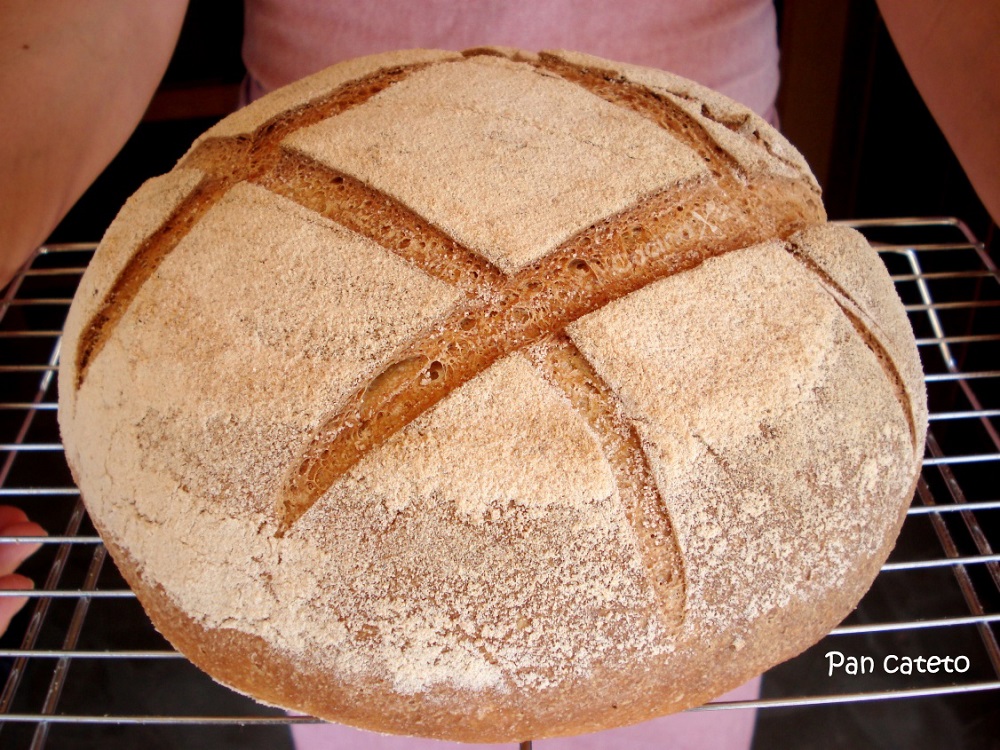
Nutrition Information (per slice)
Calories: 220
Fat: 4g
Carbohydrates: 40g
Protein: 7g
Ingredients
- 200g active sourdough starter
- 600g whole wheat flour
- 200g rye flour
- 100g oats, flaxseeds, and sunflower seeds (mixed)
- 700ml filtered water
- 15g sea salt
Instructions
- In a large mixing bowl, combine the sourdough starter and water. Stir until well-mixed.
- Gradually add the flours, oats, and seeds. Mix thoroughly until the dough forms.
- Cover the dough and let it rest for 30 minutes. Add the salt and knead it into the dough.
- Fold the dough every 30 minutes for the next 3 hours to develop gluten.
- Allow the dough to bulk ferment for 6-12 hours at room temperature, or until it has doubled in size.
- Shape the dough into loaves, cover, and proof for another 2-4 hours.
- Preheat the oven to 230°C (450°F). Score the top of the loaves and bake for 45 minutes or until the crust is dark golden brown.
- Cool completely before slicing and enjoying your artisanal multigrain sourdough!
Exploring Buenos Aires While Learning Spanish
Not only is Buenos Aires a haven for sourdough lovers, but it’s also one of the best places to learn Spanish in Argentina. While you explore the city’s bakeries, why not also immerse yourself in the local culture through a Spanish immersion course at Vamos Academy? Whether you’re enjoying bread in Recoleta Cemetery or taking in the sights in Palermo, you can also hone your Spanish skills.
Why Supporting Local Artisans Matters in Buenos Aires
When you visit the artisanal sourdough bakeries of Buenos Aires, you’re not just indulging in exceptional bread—you’re supporting a network of skilled local artisans who are passionate about preserving traditional baking methods. These bakers play a crucial role in sustaining the city’s culinary culture, and by purchasing from them, you directly contribute to the local economy and the community’s broader heritage.
Keeping Tradition Alive Through Sourdough
Many of Buenos Aires’ sourdough bakers are part of family-run bakeries that have been in operation for decades, passing down recipes and methods through generations. By purchasing from these bakeries, you help preserve these traditions. Artisanal sourdough is made through time-intensive processes, such as natural fermentation, that require dedication and expertise—something that mass-produced bread lacks.
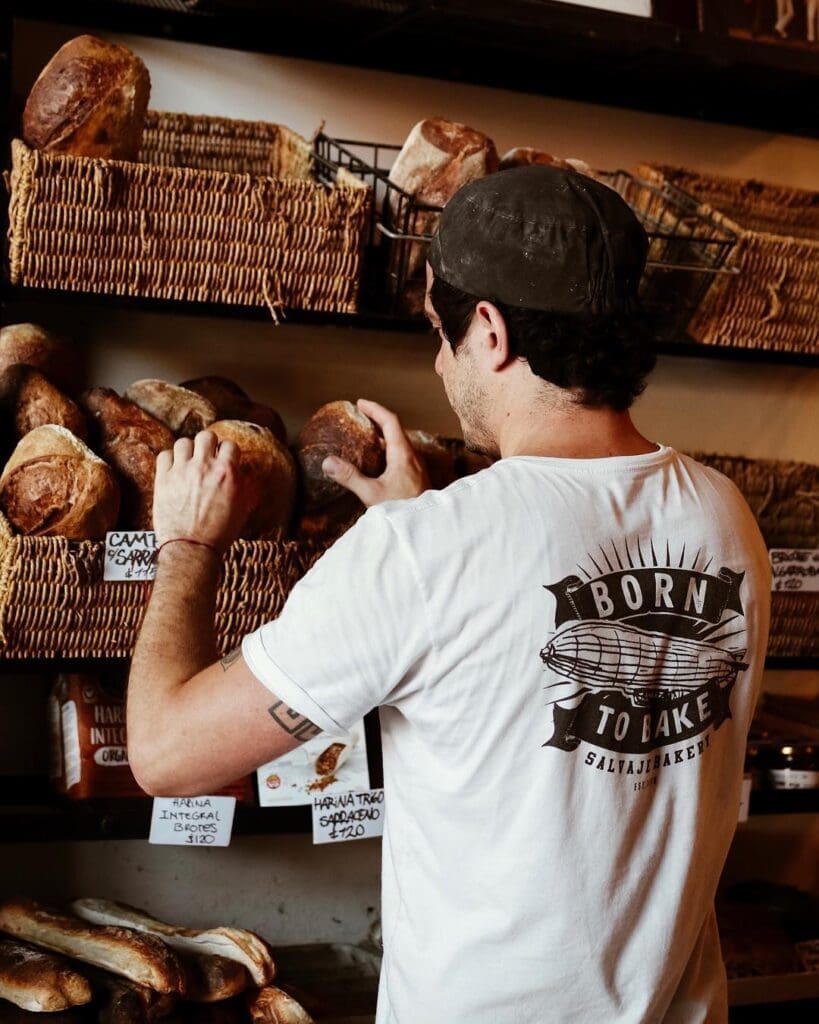
The History of Sourdough in Buenos Aires
Sourdough has a rich and complex history in Buenos Aires, a city shaped by waves of European immigration, particularly from Spain, Italy, and France. Sourdough baking techniques were introduced by these immigrant communities in the late 19th and early 20th centuries, quickly integrating into the city’s culinary traditions. In Argentina, sourdough is often referred to as “pan de masa madre” (literally “mother dough bread”), symbolizing the artisanal, time-honored process used to make it.
The French bakers who migrated to Buenos Aires brought with them the methods for crafting rustic loaves like pain au levain (French-style sourdough), which influenced local panaderías (bakeries). Similarly, Italian immigrants popularized sourdough techniques for making ciabatta and focaccia. Over time, local Argentine bakers combined these European traditions with indigenous ingredients, giving rise to unique varieties of sourdough that are now distinct to Buenos Aires.
Today, Buenos Aires stands as a vibrant hub for sourdough lovers, blending these old-world traditions with modern baking techniques. Many bakeries focus on using local, organic ingredients, and you’ll find sourdough loaves crafted from regional flours and wild yeast cultures specific to the region.
Different Types of Sourdough Bread (Tipos de Pan de Masa Madre)
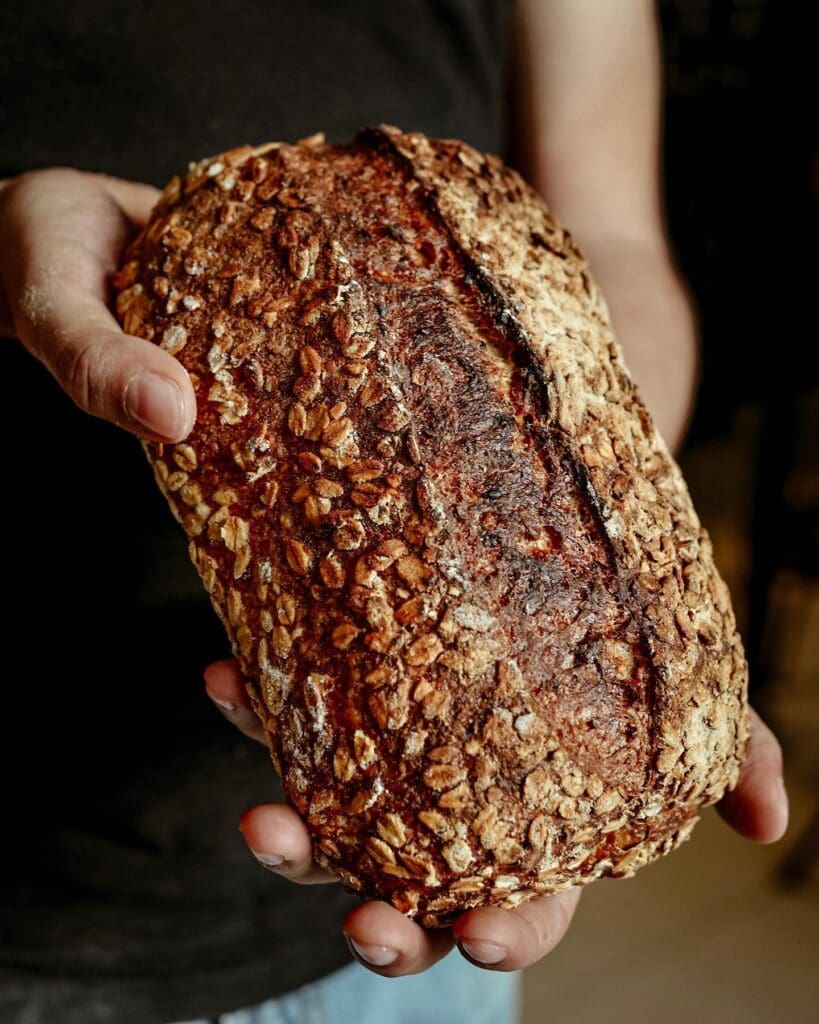
Sourdough bread comes in many forms, with each type offering different textures, flavors, and baking styles. Here’s a guide to some of the most popular types available in Buenos Aires:
- Classic Sourdough (Pan de Masa Madre Clásico): This is the most common type of sourdough, known for its crisp crust and chewy, open crumb. It’s made from just three basic ingredients: flour, water, and salt, but the natural fermentation gives it complex, tangy flavors.
- Multigrain Sourdough (Pan de Masa Madre Multicereal): Made with a mix of whole grains like rye, oats, and flaxseeds, this version is hearty and nutritious. The seeds add texture and an earthy flavor.
- Rye Sourdough (Pan de Centeno de Masa Madre): With a denser crumb and a darker, rich flavor, rye sourdough is ideal for those who prefer a more robust, hearty bread. It’s often slightly sourer than wheat-based sourdoughs.
- Seeded Sourdough (Pan de Masa Madre con Semillas): This version incorporates seeds like sunflower, sesame, and pumpkin. The seeds add a pleasant crunch and an extra layer of flavor to the tangy sourdough base.
- Flavored Sourdough (Pan de Masa Madre Saborizado): Some bakeries experiment with adding ingredients like olives (pan de masa madre con aceitunas), dried tomatoes (pan de masa madre con tomates secos), or herbs like rosemary (pan de masa madre con romero) to give their loaves unique flavors.
Each type of sourdough offers a unique experience, and when exploring Buenos Aires’ bakeries, it’s worth trying different varieties to discover your favorite.
Baking Sourdough at Home (Cómo Hacer Pan de Masa Madre en Casa)
For those inspired to try their hand at baking sourdough at home, here’s a basic guide to get you started:
- Create a Starter (Crear un Cultivo de Masa Madre): Mix equal parts flour and water and let it sit for several days, feeding it daily. This will cultivate wild yeast and bacteria needed for natural fermentation.
- Mixing the Dough (Mezcla de la Masa): Combine your active starter with more flour, water, and salt. Knead the dough until it comes together and let it ferment slowly for several hours.
- Shaping and Proofing (Formado y Fermentación Final): After the dough has risen, shape it into a loaf and allow it to proof. This process can take anywhere from a few hours to overnight.
- Baking (Hornear el Pan): Preheat your oven with a Dutch oven or baking stone inside. Bake your loaf at a high temperature (about 230°C) until the crust is golden and the bread sounds hollow when tapped.
Why It’s Important to Choose Local Over Commercial
While commercially produced bread may seem convenient, artisanal sourdough offers a higher quality product crafted with care and tradition. These loaves are free from artificial additives and preservatives, giving you a healthier, tastier option while also supporting ethical business practices.
By choosing local, you become part of the story. Each sourdough loaf reflects not only the mastery of the baker but also the rich cultural identity of Buenos Aires. So, next time you’re strolling through the city, take a moment to enjoy the fruits of these artisans’ labor and know that your purchase is making a difference.
Interesting Fact: Argentine Sourdough Is Healthier Than Its North American Counterpart
Argentine sourdough often benefits from higher-quality, locally sourced ingredients that promote better health. The country’s water quality—especially in rural areas—tends to be purer and less treated with harsh chemicals compared to some North American cities. Additionally, Argentine bakers frequently use organic, non-GMO grains that haven’t been exposed to pesticides or synthetic fertilizers. These practices result in bread that is free of harmful residues and more nutrient-dense. This focus on traditional, natural fermentation also ensures fewer additives and preservatives, resulting in a healthier, more easily digestible product.
By emphasizing local, minimally processed ingredients, Argentine sourdough tends to be a more natural, wholesome product, supporting better gut health and nutrition.




